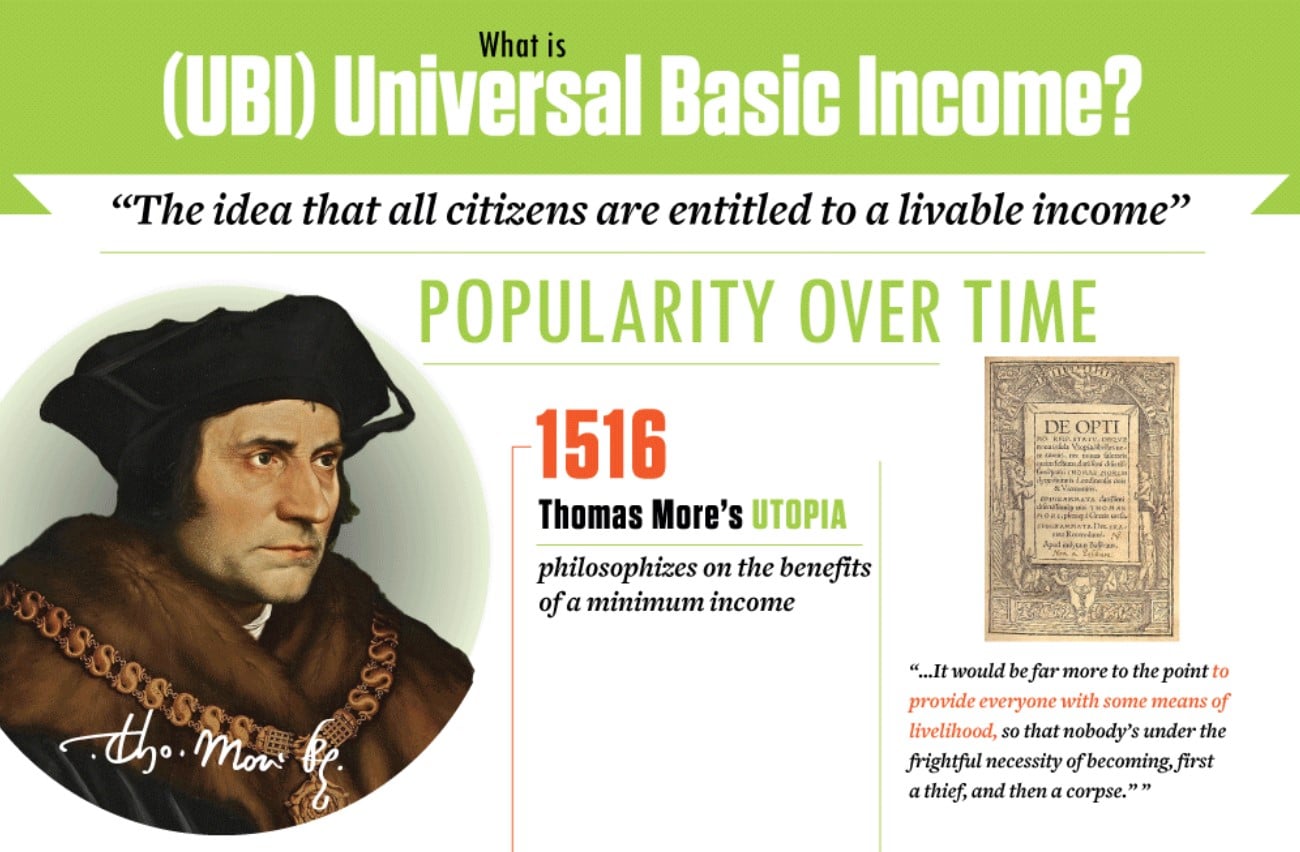In a 2018 poll, nearly half of Americans supported the idea of a Universal Basic Income program – where did this idea come from and what would it mean for us? Universal Basic Income is the idea that all citizens are entitled to a livable income. Universal Basic Income has been gaining popularity over time. In 1516, Thomas More’s ‘Utopia’ philosophizes on the benefits of a minimum income. In 1796, Thomas Paine wrote of providing a basic endowment for all adults over the age of 21. In 1967, Martin Luther King Jr. named guaranteed income as the counter to poverty. Universal Basic Income essential ideas include aid given in real money rather than vouchers or services, no income level or income requirement, provided to individuals rather than households, and distributed in frequent intervals and not in one big lump. The ideal outcome is freedom of choice in work, lifestyle, and education, and creation of an egalitarian society with equality among citizens. The ultimate goal of Universal Basic Income is to reduce the effects of poverty, such as crime, depression, and addiction. The idea might seem utopian, but testing the reality of a Universal Basic Income has just begun. A possible way to pay for this idea is Value-Added Tax.
Q1 hedge fund letters, conference, scoops etc
Value-Added Tax is a tax on the production of goods or services, usually paid the customers. Another possible way to fund Universal Basic Income is a Flat Income Tax - a 70% tax on income over $10 million could bring in nearly $300 billion by 2028. There are several cities and countries that some of these ideas to pay for Universal Basic Income. In Stockton, California monthly stipend given to 100 randomly selected citizens and in The Netherlands test groups receive varied levels of stipends and benefits. Preliminary findings include a 12% increase in confidence in financial situation and optimism for the future. A 9% increase in good or better health and a 6% increase of influence on society. The time of experiment may be coming to an end - nearly half of all work activities worldwide have the potential to be automated, potentially changing the world as we know it
Artificial intelligence reduces employment. Up to 30% of all working hours worked globally could be automated by 2030. Wages go down as competition for work drives wages go down for preexisting jobs.
Find out how Universal Basic Income could be changing our way of life here.







